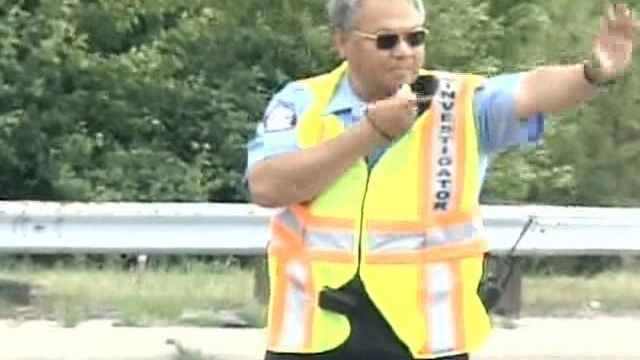Local News
Fayetteville Fields a Force of Civilians for the Streets
Civilian crash investigators are handling on-the-street paperwork and traffic duties to free uniformed officers for other work.
Posted — UpdatedFAYETTEVILLE, N.C. — If you have a fender-bender in Fayetteville, you might see flashing yellow lights instead of blue.
It's the first city in North Carolina to hire civilian crash investigators. The goal is to keep sworn officers from getting bogged down with minor accidents.
Officer Ralph Cascasan spent 26 years in the Air Force. He used to help investigate plane crashes. Now he's one of Fayetteville's five civilian crash investigators, responding to minor 10-50s—which are auto accidents to the uninitiated.
"It's so efficient that traffic is cleared so much quicker," Cascasan said.
He carries no gun, wears no badge. He drives a Caprice Classic with yellow lights.
Cascasan begins his day by checking in an starting business.
He is, he tells the dispatcher, 10-8 and 10-17 to a 10-87. 10-4?
Shortly after he’s 10-23 (on scene) at that 10-87: traffic lights out at Morganton and the All American Freeway.
He stands in the middle of the intersection and directs until the lights are fixed.
Sgt. Eric Dow said the program resulted from some simple math and some creative thinking.
“Calls for service keep going up every year. The population goes up every year. But we’re playing catch up, so we’re thinking outside the box: How can we better utilize our resources?”
Enter Cascasan and colleagues.
The five officers were selected from among 100 applicants, but they weren't just thrown out into the streets. They had to undergo five weeks of intensive training, including defensive tactics. Then they had seven weeks of on-the-job training.
They cannot issue citations. If they believe a driver needs a ticket, they call a sworn officer.
Later, Cascasan has a 10-50—an accident, a pickup truck versus a Buick.
The littlest fender-benders can bend people out of shape. Part of Cascasan's’s role is to defuse those situations.
"There's not a lot of damage. I tried to talk to the guy, but he didn't want to talk," one of the drivers tells Cascasan. That’s OK.
"That's what we try to do is separate them," Cascasan explains. Safety is the protocol, whether it's run-in or a light out.
"It worked fine,” Cascasan says. “Makes me happy."
The five civilian investigators work from 11 a.m. until 7 p.m Monday through Friday. Fayetteville is the only city the state allows to do this pilot program. If it's successful, permission might extend to all departments.
• Credits
Copyright 2024 by Capitol Broadcasting Company. All rights reserved. This material may not be published, broadcast, rewritten or redistributed.





